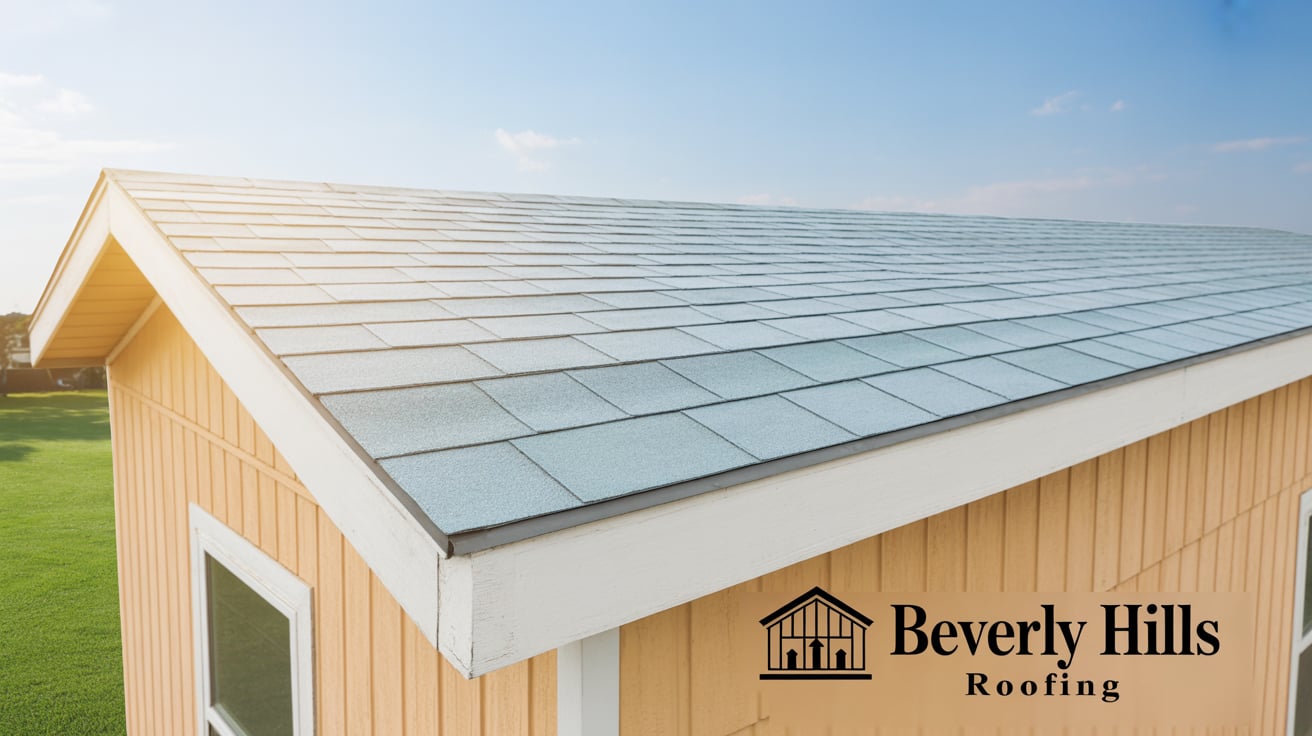Living in a mobile home in Beverly Hills comes with its own set of perks – from the beautiful weather to the scenic neighborhoods. But if you own or manage a mobile home, you’ve probably worried about those dreaded roof leaks. Water sneaking in where it shouldn’t can turn your cozy space into a headache overnight. If you’ve ever listened to the drip-drip of a leak during a rainstorm, you know just how important it is to keep your roof in top shape. Today, I’m sharing some simple and practical ways you can prevent leaks, drawing from my own experiences and a bit of help from Beverly Hills Roofing. Let’s get into the nuts and bolts of Mobile Home Roofing care!
Keep a Close Eye: Routine Roof Checks
The best way to dodge a leaky roof is to spot the trouble before it starts. About twice a year—think spring and fall—grab a sturdy ladder and give your roof a good, slow look. Check for cracks, bubbles, or anything that doesn’t look quite right. Even tiny splits can become gateways for rain if you ignore them. And don’t forget to peek at the seals around vents and skylights! These spots are notorious for letting water sneak in.
If you notice leaves piling up or branches stuck in a corner, sweep them away. Debris can trap moisture, and that’s just asking for trouble. I usually make an afternoon of it, with some music and a broom, just taking care of my home before problems start. It’s way easier to fix a small crack than a full-blown leak.
Seal It Up: Patch and Protect
Once you’ve checked for trouble spots, it’s time to roll up your sleeves. If you spot any areas that look worn out, grab a good sealant made for mobile home roofs. Spread it over the cracks, edges, and anywhere water might want to sneak through. Don’t forget to reseal seams and joints every couple of years—even if they look okay now, they wear out with time and sunshine.
For extra peace of mind, you can apply a reflective roof coating. Not only does this help block out the sun’s harsh rays, but it can also add an extra barrier against rainwater. It’s like giving your roof a raincoat and sunscreen all at once!
“An ounce of prevention is worth a pound of repair, especially when it comes to keeping your roof leak-free.”
Don’t Forget the Edges: Gutters and Drains
Gutters might seem boring, but they’re your roof’s first line of defense. If they’re clogged with leaves or gunk, water can pool up and find its way under your roof. Make it a habit to clean them out regularly, especially after windy days or storms. A clear path for rainwater means fewer chances for leaks.
Check the downspouts too. If water isn’t draining away from your home, it can soak into the ground and cause even more problems. I learned this the hard way one rainy season—trust me, it’s easier to clean the gutters than to fix water damage inside.
Calling in the Pros: When to Get Extra Help
Sometimes, it’s best to call in experts like Beverly Hills Roofing. If you see sagging, major damage, or you just feel out of your depth, don’t risk a DIY disaster. Pros can spot hidden issues, offer solid advice, and make repairs that last. Plus, they’ll often have emergency services if you get caught off guard by a sudden leak.
Remember, a well-maintained roof can save you tons of money and stress down the road. If you’re not sure what you’re looking at, don’t hesitate to reach out for a professional inspection.
| Key Feature | Safety | Cost | Emergency Service |
|---|---|---|---|
| Seamless leak prevention tips | Reduces risk of water damage and mold | Lower long-term repair bills | 24/7 rapid response available |
| Expert inspections | Protects your investment | Affordable maintenance plans | Quick fixes for unexpected leaks |
| Durable roof coatings | Safe, non-slip surfaces | Prevents costly replacements | Local crews for fast help |
FAQs: Your Mobile Home Roof Questions Answered
Q1: How often should I check my mobile home roof for leaks?
A: You’ll want to give your roof a good inspection at least twice a year—once in spring and again in fall. After big storms or windy weather, it’s also smart to take a quick look for new damage.
Q2: What signs mean I might have a leak?
A: Keep an eye out for water stains on the ceiling, musty smells, bubbling paint, or soft spots in your roof. Even a little discoloration can be a clue that water is getting in.
Q3: Can I seal small cracks myself, or should I hire a pro?
A: For tiny cracks or worn seals, a good roof sealant and a steady hand can usually do the trick. But if you’re dealing with bigger damage, or you’re not sure what to use, it’s best to call in folks like Beverly Hills Roofing for help.
Q4: What should I do if I find a leak during a storm?
A: Do your best to catch the water with buckets or towels and dry up any puddles. Once it’s safe, reach out for emergency roof repair services right away to patch things up before more damage happens.
Wrap-Up: Stay Dry and Worry-Free
Caring for your mobile home roof doesn’t have to be complicated. Regular checkups, a little cleaning, and the right sealants can keep leaks at bay and help your home weather any storm. And if you ever feel stuck, remember that Beverly Hills Roofing is just a call away for Mobile Home Roofing help. Stay dry, stay safe, and enjoy your home—all year long!
Read More: Beverly Hills Roofing


